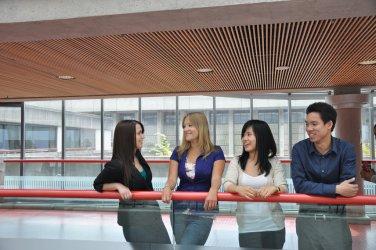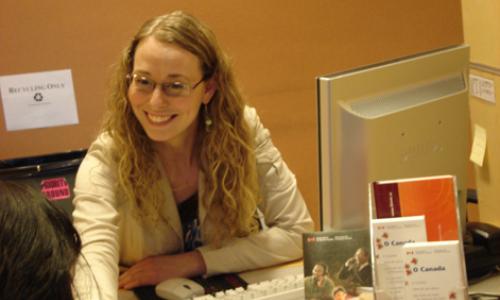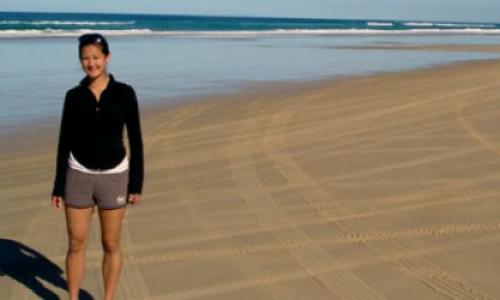
In Must-know Tips For A University Freshman - Part 1, Dennis shared his general advice and studying tips for students who are new to the academic environment. In this article, he discusses the advantages of getting involved in extracurricular activities and how Co-op can help advance your professional career while you're still in school.
On Extracurricular Activities
Sign up for as many student club email lists that interest you. In the meantime, partake as many club events as possible, and try getting involved in an executive position for a club and aim for the opportunity to host an event yourself. By doing so, you will be surprised by how many like-minded individuals you will be able to meet, network and form a close relationship with while developing your professional skills.
Attend networking and alumni events early on in your undergraduate career. Chances are, when you first start university, you don't know what you are doing or what you want to do now and in twenty years. If you chose your major based on what your parents or someone you know told you, but you have no clue what opportunities this major will lead you to, I would strongly encourage you to attend events related to your program as early on as possible. Ask the senior students or experienced professionals why they ended up doing what they do, their likes and dislikes. Remember, when you are young and inexperienced, stay open-minded and listen to their stories to enrich yourself.
On this note, even if you are not an accounting student, I strongly encourage you to attend some recruitment info sessions. That way, you can observe how the candidates interact with each other as business professionals. Based on my experience, unless your field requires no personal interactions, great presentation skills and the ability to engage in pleasant interpersonal interactions will always be a bonus.
Also, if you are a Business student or alumnus, the Career Management Center (CMC) actually has a good series of workshops, info sessions, and networking events all year round, and most of them are free. For instance, each spring, CMC will invite a group of recruiters to review and give feedback on your resume and cover letter for free. All you need to do is start looking, and you will be amazed by the value these events provide.
Attend as many case competitions and conferences as possible. As I am closer to finishing my undergraduate studies and starting to look for full-time job opportunities, I have realized good communication skill is probably one of the top qualities in any fields. Whether you are hosting a meeting, doing a presentation in front of a crowd, or talking on the phone, public speaking and good communication skills are critical in every aspect of our daily lives.
Although the business faculty may have the most case competitions even if you are not a Business student, do not be afraid to join. In particular, there are at least 2 open case competitions for students from all faculty every year, the Elite and Peak, as well as many other specific case competitions, both domestically and internationally. I would strongly encourage you to look into these case competitions as an opportunity to improve your public speaking and presentation skills, but also to build up self-confidence and network with people outside of your regular circles.
On Careers
Not all of us can afford the ever increasing tuition hikes, and many of us rely on student loans or part-time jobs to pay our bills. However, I would like to emphasize the importance of learning something on your side jobs. I would strongly encourage you to participate in the Co-operative Education program, and aim for at least one high profile employer in your field of studies during your undergraduate studies. Otherwise, you will realize how hard it may be to join these high profile companies once you've graduated, and be amazed by how easy it is relatively to joining as a co-op student.
If you are in the Co-op program, I would recommend you to work for 2 to 3 different employers throughout your co-op career, preferably in all of private, public and government sectors. Co-op students have the advantage of switching and trying different jobs in different organizations in a short period of time, which you are not likely able to do when you become a professional. Once you become a professional, if you have multiple jobs in a span of a year or two, the employer will likely pass you on in the job application process, as they do not want to hire you and spend time and money to train someone who is not planning on staying long-term with the company.
As someone who has worked for both a local government agency and out-of-province private corporation, I value the life skills I gained while I was living in a foreign city. The lessons and skill sets I learned are truly invaluable, and they will be beneficial for the rest of your life if you have never lived on your own before. In light of this, I would encourage you to try to secure an out-of-town co-op placement, be it 4 months or longer. You will be amazed by how much you can learn from this experience.
There are many ways you can live your life, but I think the only successful way to live it is to live it to the fullest by maximizing your potential and becoming as productive as you can!















